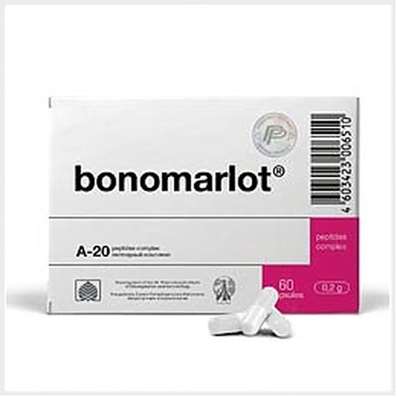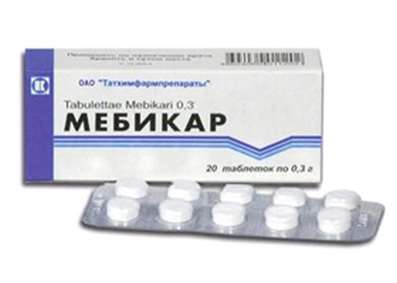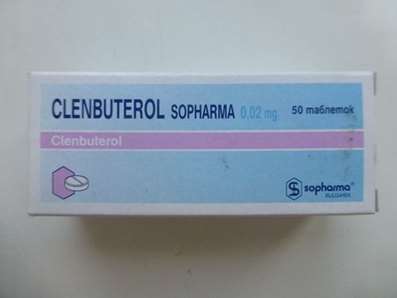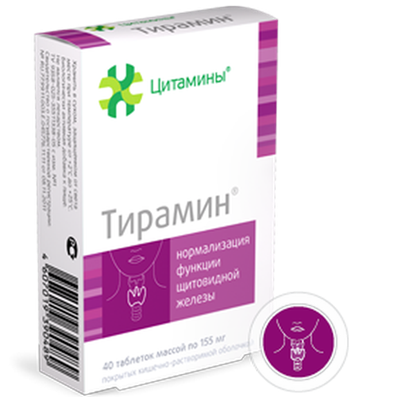Instruction for use: Aritel
I want this, give me price
Trade name of the drug – Aritel
Dosage Form: tablets
Active substance: Bisoprololum
ATX
C07AB07 bisoprolol
Pharmacotherapeutic group: Beta1-selective blocker [Beta-blockers]
The nosological classification (ICD-10)
I10 Essential (primary) hypertension: hypertension; Arterial hypertension; Arterial hypertension crisis course; Essential Hypertension; Essential hypertension; Essential hypertension; Essential hypertension; Essential hypertension; Primary hypertension; Arterial hypertension, complications of diabetes; The sudden increase in blood pressure; Hypertensive disorders of blood circulation; hypertensive condition; hypertensive crises; arterial Hypertension; malignant Hypertension; Hypertonic disease; hypertensive crises; accelerated hypertension; malignant hypertension; The aggravation of hypertensive disease; Transient hypertension; Isolated systolic hypertension
I15 Secondary hypertension: Arterial hypertension, complications of diabetes; hypertension; The sudden increase in blood pressure; Hypertensive disorders of blood circulation; hypertensive condition; hypertensive crises; hypertension; arterial Hypertension; malignant Hypertension; hypertensive crises; accelerated hypertension; malignant hypertension; The aggravation of hypertensive disease; Transient hypertension; hypertension; Arterial hypertension; Arterial hypertension crisis course; renovascular hypertension; Hypertension symptomatic; Renal hypertension; Renovascular hypertension; renovascular hypertension; Symptomatic hypertension
I20 Angina [angina]: Heberden disease; Angina pectoris; The attack of angina pectoris; recurrent angina; Spontaneous angina; Stable angina pectoris; Angina rest; Angina progressing; Angina mixed; Angina spontaneous; stable angina; Chronic stable angina; Angina Syndrome X
I25.9 Chronic ischemic heart disease, unspecified: CHD; Insufficiency of coronary circulation; Coronary atherosclerosis in patients with coronary artery disease
I50.0 Congestive heart failure: anasarca heart; Decompensated congestive heart failure; Congestive heart failure; Congestive heart failure with high afterload; Congestive chronic heart failure; Cardiomyopathy with severe chronic heart failure; Compensated chronic heart failure; Swelling with circulatory failure; Edema of cardiac origin; Swelling of the heart; Edematous syndrome in diseases of the heart; Edematous syndrome in congestive heart failure; Edematous syndrome in heart failure; Edematous syndrome in heart failure or liver cirrhosis; right ventricular failure; Congestive Heart Failure; Heart failure stagnant; Heart failure with low cardiac output; Heart failure is a chronic; Cardiac edema; Chronic decompensated heart failure; Chronic Congestive Heart Failure; Chronic heart failure; Change of liver function in heart failure
Composition (per tablet):
Aritel
active substance: bisoprolol fumarate 5 mg; 10 mg
Excipients: potato starch - 24/36 mg; colloidal silicon dioxide (Aerosil) - 1.8 / 2.7 mg; magnesium stearate - 0.6 / 0.9 mg; Lactose monohydrate (milk sugar) - 63.1 / 91.7 mg; Povidone - 4.5 / 6.7 mg; MCC - 21/32 mg
shell film: Selekoat AQ-02140 (hypromellose - hydroxypropyl - 3.3 / 4.95 mg, macrogol 400 - polyethylene glycol 400 - 0.54 / 0.81 mg, macrogol 6000 - polyethylene glycol 6000 - 0.84 / 1.26 mg , titanium dioxide - 1,278 / 1,917 mg, dye "sunset" yellow - 0,042 / 0,063 mg) - 9.6 mg
Aritel Cor
active substance: bisoprolol fumarate 2.5 mg
Additional ingredients: colloidal silicon dioxide (Aerosil) - 1.5 mg; potato starch - 18 mg; monohydrate lactose (milk sugar) - 54 mg; Povidone - 3 mg; MCC - 20 mg; Magnesium stearate - 1 mg
shell film: Selekoat AQ-02140 (hypromellose - hydroxypropyl - 1.8 mg, macrogol - polyethylene glycol 400 - 0.33 mg macrogol - polyethylene glycol 6000 - 0.45 mg titanium dioxide - 0.39 mg dye "sunset" yellow - 0.03 mg) - 3 mg
Description
Aritel
Tablets, film-coated light orange color, round, biconcave.
The cross section: see two layers, the inner layer - almost white.
Aritel Cor
Tablets, film-coated, light orange, heart-shaped, with Valium on both sides.
The cross section: see two layers, the inner layer - almost white.
Pharmacological Properties of Aritel
Pharmachologic effect - antianginal, hypotensive, beta-adrenoceptor blocking.
Pharmacodynamics
Selective β1-blocker, without its own sympathomimetic activity, has no membrane stabilizing action. It has only a negligible affinity for the β2-adrenoceptor bronchial smooth muscle and blood vessels, as well as the β2-adrenergic receptors, involved in the regulation of metabolism. Therefore, bisoprolol generally does not affect the airway resistance and metabolic processes that are involved in the β2-adrenergic receptors.
As a rule, the maximum reduction in blood pressure is achieved within 2 weeks after initiation of therapy.
Bisoprolol reduces the activity simpatoadrenalovoj system by blocking the β1-adrenergic receptors of the heart.
For a single ingestion in patients with coronary artery disease with no evidence of heart failure bisoprolol slows heart rate, reduces the stroke volume and, as a consequence, reduces the ejection fraction and myocardial oxygen demand. When long-term therapy initially elevated peripheral vascular resistance is reduced. Reducing the activity of renin in blood plasma is considered as one of the components of the antihypertensive action of β-blockers.
Pharmacokinetics
Suction
Bisoprolol is almost completely (90%) absorbed from the gastrointestinal tract. Due to its low bioavailability metabolization at the first passage through the liver (at about 10%) is approximately 90% after oral administration. Food does not affect the bioavailability. Bisoprolol demonstrates linear kinetics, and its plasma concentration is proportional to the dose in the dose range of 5 to 20 mg. Tmax - 2-3 h.
Distribution
Bisoprolol is distributed widely enough. Vd is 3.5 L / kg. Communication plasma protein reaches about 30%.
Metabolism
It is metabolized by oxidative way without subsequent conjugation. All metabolites are polar (water soluble) and the kidneys. Major metabolites detected in plasma and urine did not exhibit pharmacological activity. Data obtained from experiments with microsomes in vitro human liver demonstrate that bisoprolol is metabolized mainly via isoenzyme CYP3A4 (about 95%) and CYP2D6 isozyme plays only a minor role.
breeding
The clearance of bisoprolol is determined by the equilibrium between the renal excretion as unchanged (about 50%) and metabolism in the liver (approximately 50%) to metabolites, which are also excreted by the kidneys. The total clearance is 15 l / h. T1 / 2 - 10-12 h.
There is no information on the pharmacokinetics of bisoprolol in patients with chronic heart failure and simultaneous impaired liver or kidney function.
Indications for Aritel
chronic heart failure;
arterial hypertension;
Coronary heart disease - prevention of attacks of stable angina.
Contraindications for Aritel
Common for Aritel® and Aritel® Cor
hypersensitivity to bisoprolol or to any of the excipients and other β-blockers;
lactase deficiency, lactose intolerance, glucose-galactose malabsorption;
cardiogenic shock;
collapse;
congestive heart failure;
Chronic heart failure decompensation requiring of inotropic therapy;
AV blockade II and III level without pacemaker;
sinoatrial block;
syndrome sick sinus;
bradycardia (heart rate less than 50 beats / min.);
severe bronchial asthma or chronic obstructive pulmonary disease;
marked reduction of blood pressure (SBP less than 90 mm Hg..);
The expressed disturbances of peripheral circulation or Raynaud's syndrome;
pheochromocytoma (without the simultaneous use of α-blockers);
metabolic acidosis;
lactation;
simultaneous MAO inhibitors (except for MAO-B inhibitors);
age of 18 years (effectiveness and safety have been established).
In addition to the drug Aritel®
simultaneous use with floctafenine and sultopride.
Common for Aritel® and Aritel® Cor
Precautions: conducting desensitizing therapy; Prinzmetal angina; hyperthyroidism; diabetes type 1 and diabetes with considerable fluctuations in blood glucose concentration; AV block of I degree; severe renal failure (Cl creatinine less than 20 ml / min); expressed human liver; psoriasis; restrictive cardiomyopathy; congenital heart defect or heart valve with severe hemodynamic impairment; chronic heart failure, myocardial infarction within the last 3 months; pheochromocytoma (with concomitant use of alpha-blockers); strict diet.
Pregnancy and breast-feeding
Preparations Aritel® and Aritel® Corinthians should be recommended for use only if the benefit to the mother outweighs the risk of side effects in the fetus. Typically, β-blockers decrease the blood flow in the placenta and can affect fetal development. It is necessary to monitor blood flow in the placenta and uterus, as well as to observe the growth and development of the child, in case of occurrence of adverse events in relation to pregnancy and / or fetus - the use of alternative therapies. It is necessary to carefully examine the newborn after delivery. In the first three days of life may experience symptoms of hypoglycemia and bradycardia.
Data on the allocation of bisoprolol into breast milk is not. Therefore, the administration of drugs and Aritel® Aritel® Cor is not recommended for women during lactation. If this technique is required during lactation, breast-feeding should be discontinued.
Side effect of Aritel
Common for Aritel® and Aritel® Cor
The frequency of adverse reactions listed below is defined as follows: very common (≥ 1/10); often (≥ 1/100, <1/10); uncommon (≥ 1/1000, <1/100); rare (≥ 1/10 000, <1/1000); very rare (<1/10 000), including isolated reports.
CNS: often - dizziness *, headache *; rarely - fatigue; rare - loss of consciousness.
General disorders: often - asthenia (patients with chronic heart failure), fatigue *; infrequently - asthenia (patients with arterial hypertension or angina).
Mental disorders: rarely - depression, insomnia; rarely - hallucinations, nightmares.
For the skin: rarely - hypersensitivity reactions, such as itching, rash, redness of the skin; very rare - alopecia. β-blockers may exacerbate psoriasis current symptoms or induce psoriasis-like rash.
From the musculoskeletal system: rarely - muscle weakness, muscle cramps.
From the digestive system: often - nausea, vomiting, diarrhea, constipation; rarely - hepatitis.
With the respiratory system: rarely - bronchospasm in patients with asthma or airway obstruction in history; rarely - allergic rhinitis.
From a sight organ: seldom - a decrease in lacrimation (to consider when wearing contact lenses); very rarely - conjunctivitis.
On the part of the organ of hearing: rarely - hearing impairment.
From the CCC: very often - bradycardia (in patients with CHF); often - worsening symptoms of CHF flows (patients in CHF), a sense of cooling and numbness in the extremities, marked reduction in blood pressure, especially in patients with CHF; rarely - a violation of AV conduction, bradycardia (in patients with hypertension or angina), worsening of heart failure symptoms flow (in patients with hypertension or angina), orthostatic hypotension.
Laboratory findings: rarely - increased triglyceride concentration and liver transaminases (ACT, ALT) in blood.
* In patients with hypertension or angina, these symptoms usually appear at the beginning of treatment, softly pronounced and disappear within 1-2 weeks after starting treatment.
In addition to the drug Aritel®
From the urogenital system: rarely - a violation of potency, the weakening of the libido, Peyronie's disease, cystitis, renal colic, polyuria.
From the side of hematopoiesis: in some cases - thrombocytopenia, agranulocytosis.
Effect on the fetus: intrauterine growth retardation, hypoglycemia, bradycardia.
Interaction
Common for Aritel® drugs and Aritel® Cor
Not recommended combinations
In the treatment of heart failure. Class I antiarrhythmics (eg quinidine, disopyramide, lidocaine, phenytoin, flecainide, propafenone), while the use of bisoprolol may reduce AV conduction and contractile ability of the heart.
In the treatment of heart failure, arterial hypertension, stable angina. CCB verapamil type and to a lesser extent diltiazem while the use of bisoprolol may lead to a decrease in myocardial contractility and AV conduction disorders. In particular, in / with the introduction of verapamil in patients receiving β-blockers may lead to severe hypotension and AV blockade.
Antihypertensive drugs central action (such as clonidine, methyldopa, moxonidine, rilmenidine) may lead to a slowing of the heart rate and reducing cardiac output and to vasodilatation due to the reduction of the central sympathetic tone. Abrupt withdrawal, particularly to cancellation β-blockers may increase the risk of rebound hypertension.
Combinations requiring special care
In the treatment of hypertension, stable angina. Class I antiarrhythmics (eg quinidine, disopyramide, lidocaine, phenytoin, flecainide, propafenone), while the use of bisoprolol may reduce AV conduction and myocardial contractility.
In the treatment of heart failure, arterial hypertension, stable angina. BPC - dihydropyridine derivatives (eg, nifedipine, felodipine, amlodipine) - while the use of bisoprolol may increase the risk of hypotension. In patients with heart failure can not exclude the risk of further deterioration of the contractile function of the heart.
Class III antiarrhythmics (eg amiodarone) may increase the violation of AV conduction.
The action of β-blockers for topical application (eg eye drops for glaucoma treatment) may enhance the systemic effects of bisoprolol (lowering blood pressure, slowing of the heart rate).
Parasympathomimetics while the use of bisoprolol may increase the violation of AV conduction and increase the risk of bradycardia.
Hypoglycemic effect of insulin or hypoglycemic agents for oral administration can be enhanced. Symptoms of hypoglycaemia - particularly tachycardia - may be masked or suppressed. Such interactions are more likely when using a nonselective β-blockers.
Funds for general anesthesia may increase the risk cardiodepressive action, resulting in hypotension (see. "Special Instructions").
Cardiac glycosides while the use of bisoprolol may lead to an increase of the pulse of time and thus - to the development of bradycardia.
NSAIDs may reduce the antihypertensive effect of bisoprolol.
The simultaneous use of the drug with β-agonists (eg isoprenaline, dobutamine) may lead to a mutual reduction of the effect of drugs.
Bisoprolol combination with agonists affecting β- and α-adrenergic receptors (such as norepinephrine, epinephrine), may enhance the effects of vasoconstrictor agents arising with α-adrenergic receptors, resulting in an increase in blood pressure. Such interactions are more likely when using a nonselective β-blockers.
Antihypertensives, as well as with other possible means antihypertensive effect (e.g. tricyclic antidepressants, barbiturates, phenothiazines), may enhance the antihypertensive effect of bisoprolol.
Mefloquine while the use of bisoprolol may increase the risk of bradycardia.
MAO inhibitors (except MAO-B inhibitors) may increase the antihypertensive effect of .beta.-blockers. Concomitant use can also lead to the development of hypertensive crisis.
In addition to the drug Aritel®
contraindicated combinations
Floctafenine: .beta.-adrenergic blockers may impede the compensatory cardiovascular reactions with hypotension caused by floctafenine.
Sultopride: there is a risk of ventricular arrhythmia
Dosage and Administration
Aritel®
Aritel® Cor
Inside, in the morning before breakfast, during, or after, 1 time a day with plenty of fluids. Tablets should not be chewed or triturate.
CHF
Home treatment and Aritel® Aritel® CHF medications Cor necessarily require the special titration phase and regular medical supervision.
A prerequisite for the treatment of drug and Aritel® Aritel® Cor is stable chronic heart failure without acute symptoms.
CHF medications and treatment Aritel® Aritel® Cor begins according to the following titration scheme. This may require individual adaptation depending on how well the patient carries the prescribed dose, i.e. the dose can be increased only if the previous dose was well tolerated.
To ensure proper titration process in the initial stages of treatment is recommended to use the drug in smaller doses.
The recommended starting dose is 1.25 mg / day (Table 1.2., 2.5 mg). Depending on individual tolerability, the dose should be gradually increased to 2.5; 3.75 (1.5 Table 2.5 mg.), 5; 7.5 (Table 1. 5 mg and 1 tablet. 2.5 mg) and 10 mg 1 time per day at intervals of at least 2 weeks.
If an increase in the dose of the drug is poorly tolerated by the patient, the dose may be reduced.
The maximum dose for the treatment of chronic heart failure is 10 mg / day.
During titration we recommend regular monitoring of blood pressure, heart rate and increase the severity of symptoms of CHF. Worsening heart failure symptoms possibly since the 1st day of the drug.
During the titration phase, or it can occur after a temporary deterioration in the flow of CHF, hypotension or bradycardia. In this case, it is recommended first of all to carry out a correction dose of concomitant therapy drugs. It may also require temporary dose reduction or withdrawal of treatment Aritel®.
After stabilization, the patient should undertake a re-titration of the dose or continue the treatment.
Arterial hypertension and coronary heart disease (prevention of attacks of stable angina)
When hypertension and coronary heart disease the drug is prescribed to 5 mg / day. If necessary, the dose was increased to 10 mg / day.
In the treatment of hypertension and angina pectoris the maximum dose is 20 mg / day.
Bisoprolol formulation can be applied in another dosage form (Table. 2.5 mg, with Valium).
In all cases, the reception mode, and selects the dose the doctor for each patient individually, in particular taking into account the individual characteristics and the patient's condition.
Special patient groups
Impaired renal or hepatic function. In violation of mild or moderate hepatic or renal function Dosage adjustment is not usually required. When expressed violations kidney (Cl creatinine less than 20 mL / min) and in patients with severe liver disease the maximum dose is 10 mg / day. Increasing the dose in such patients should be administered with extreme caution.
Elderly patients. Dose adjustment is not required.
There are currently insufficient data on the use of drugs and Aritel® Aritel® Cor in patients with CHF, conjugated with type 1 diabetes, severe impaired renal function and / or liver disease, restrictive cardiomyopathy, congenital heart defects or hemodynamically caused by heart disease. Also still not sufficient data has been obtained relative to CHF patients with myocardial infarction within the past 3 months.
Overdose
Symptoms: AV block, bradycardia, decreased blood pressure, bronchospasm, acute cardiac insufficiency and hypoglycaemia.
Treatment: First of all you need to stop taking the drug and start supporting symptomatic therapy.
In severe bradycardia: in / atropine. If the effect is insufficient, you can enter with caution agent with positive chronotropic effect. Sometimes it may require temporary staging an artificial pacemaker.
In marked decrease in blood pressure: in / in a plasma-purpose solutions and vasopressors.
When AV blockade: patients should be under constant supervision and be treated with β-adrenergic agonists such as epinephrine. If necessary - setting an artificial pacemaker.
When exacerbation of chronic heart failure: in / with the introduction of diuretics, drugs with positive inotropic effect and vasodilators.
When bronchospasm: the use of bronchodilators, including β2-sympathomimetic and / or aminophylline.
When hypoglycemia: in / with the introduction of dextrose (glucose).
Special instructions
Patients should not discontinue medication abruptly and modify the recommended dose without first consulting your doctor, because this may lead to a temporary worsening of cardiac activity.
Treatment should not be interrupted suddenly, especially in patients with CAD. If discontinuation is necessary, the dose should be reduced gradually.
Control patients taking bisoprolol should include monitoring of heart rate and blood pressure (at the beginning of treatment - daily, then 1 every 3-4 months), ECG, blood glucose concentration in diabetic patients (1 every 4-5 months). In elderly patients, it is recommended to monitor renal function (1 every 4-5 months). It is necessary to train the patient's heart rate calculation method and instruct on the need of medical advice in heart rate less than 50 bpm. / Min.
Before treatment is recommended to study of respiratory function in patients with a history of bronchopulmonary history.
Approximately 20% of patients with angina β-blockers are ineffective. The main reason - severe coronary atherosclerosis with a low threshold of ischemia (heart rate less than 100 beats / min.) And increased end-diastolic volume of the left ventricle, which violates the subendocardial blood flow.
Smokers effectiveness of β-blockers lower.
Patients who use contact lenses should bear in mind that during treatment may decrease the production of tear fluid.
When applied in patients with pheochromocytoma are at risk of paradoxical hypertension (if not previously accomplished adrenoblockade α-effective).
In hyperthyroidism drug may mask certain clinical signs of hyperthyroidism, such as tachycardia. Abrupt withdrawal of the drug in patients with hyperthyroidism is contraindicated because the symptoms can increase.
In diabetes may mask tachycardia caused by hypoglycemia. In contrast, nonselective β-blockers, almost no increase insulin-induced hypoglycemia and delay recovery of blood glucose to normal levels.
At the same time taking clonidine its reception can be terminated only after a few days after discontinuation of drugs and Aritel® Aritel® Cor.
Perhaps the increased severity of hypersensitivity reactions and the lack of effect of conventional doses of epinephrine (adrenaline) with aggravated allergic history.
If necessary, an elective surgical treatment drug cancellation performed for 48 hours prior to general anesthesia. If the patient has taken the drug before surgery, he should pick up the drugs for general anesthesia with minimal negative inotropic effect. It is necessary to warn the anesthetist that the patient is taking a drug or Aritel® Aritel® Cor.
Reciprocal activation of the vagus nerve can be removed in / atropine (1-2 mg).
PM reducing stocks catecholamines (including reserpine), may enhance the effect of β-blockers, so patients taking these combinations of drugs should be under constant medical supervision in order to identify arterial hypotension or bradycardia. Patients with diseases bronhospasticheskimi can assign cardioselective blocker in case of intolerance and / or ineffectiveness of other antihypertensive drugs, but should strictly follow the dosage. Overdosing is dangerous development of bronchospasm.
In the case of elderly patients increasing bradycardia (less than 50 u. / Min), hypotension (Sad below 100 mm Hg. Art.), The AV blockade bronchospasm, ventricular arrhythmias, severe liver and renal function is necessary to reduce the dose or stop treatment.
It is recommended to discontinue therapy in the development of depression caused by taking β-blockers.
Do not abruptly discontinue the treatment because of the risk of severe arrhythmias and myocardial infarction. Abolition are gradually reducing the dose for 2 weeks or more (reduce dose by 25% in 3-4 days).
It is necessary to cancel prior to the study in blood and urine catecholamines and Normetanephrine vanillylmandelic acid; titers of antinuclear antibodies.
Effects on ability to drive vehicles or perform work requiring higher rate of physical and mental reactions. During the period of treatment must be careful when driving and occupation of other potentially hazardous activities that require high concentration and psychomotor speed reactions.
Release Form
Aritel®
Tablets, film-coated, 5 mg, 10 mg. In blisters made of PVC film and aluminum foil printed patent 7, 10, 28 or 30 pieces. 2, 4 blisters on 7 pcs. or 3, 5, 10 contour cell packages of 10 pieces. or 1, 2 blisters to 28 pcs., or 1, 2, 3 blisters to 30 pcs. a stack of cardboard.
Aritel® Cor
Tablets, film-coated, 2.5 mg. In blisters made of PVC film and aluminum foil printed lacquered 10, 20 or 30 pieces. 1, 3, 5, 10 contour cell packages of 10 pieces. or 3, 5 contour cell packages of 20 pcs., or 1, 2, 3 blisters to 30 pcs. placed in a pile of cardboard.
Manufacturer
CJSC "Kanonfarma production." 141100, Russia, Shchelkovo, Moscow region., Street. Zarechnaya, 105.
Tel .: (495) 797-99-54; fax: (495) 797-96-63.
www.canonpharma.ru
Conditions of supply of pharmacies
On prescription.
Storage conditions of Aritel
In a dry, dark place at a temperature no higher than 25 ° C.
Keep out of the reach of children.
Shelf life
2 years.
Do not use beyond the expiration date printed on the package.

 Cart
Cart





